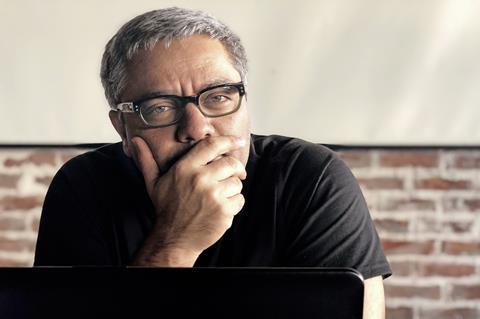A member of the Competition jury for the online Berlinale, the Iranian filmmaker discusses his ”difficult and very specific” situation, connecting to nature, and the influence of Loach, Haneke and Herzog.

Iranian producer and director Mohammad Rasoulof won the Golden Bear last year for There Is No Evil at the Berlinale. Not that he was able to attend in person — he is under a travel and filmmaking ban and is still threatened with prison by the Iranian government. Rasoulof is one of the six Golden Bear winners chosen to sit on this year’s Berlinale jury but, unlike his colleagues, he will not attend the festival in person. Instead, Rasoulof will be watching the Competition titles from his home in Iran.
What is your office like?
Basically, it’s just me, my mind and my computer. I am in an apartment on an island in the south of Iran. This is partly because the water and the air in Tehran are so polluted. Also, it’s to do with all the pressure that is on me through the government. Being near to nature helps me to focus.
How do you start your working day?
My situation is difficult and very specific. There is still the possibility of my prison sentence [being enforced]. Basically, the first thing I do when I wake up is check my telephone to see if any text messages have arrived. That’s not just because of the former jail sentence but because of new cases that have been filed [against me]. After that, I go out and I take a walk by the shore. What I do first of all is connect myself with nature.
What was your first job in the film industry?
My first project [as a director] was docu-drama The Twilight (2002). About 20 years ago, I met the head of a prison. This person had the idea of connecting a male prisoner and a female prisoner to help them get to know each other. He actually organised a wedding for them and set up a room in the prison where they lived for one day a week.
Who do you look up to in the industry and why?
I like how Ken Loach expresses himself. I think his reasons for filmmaking and what motivates him are similar to my motivations. Michael Haneke is important to me because of the way he connects cinema with philosophical aspects. And the director who inspired me to step into the realm of film was Werner Herzog. There were two of his films I saw on Iranian TV when I was young: The Enigma Of Kaspar Hauser and, later, Fitzcarraldo, which was heavily censored. It was very different from the version I saw later.
Who helped you the most when you were starting out?
There was a group of filmmakers, among them Mohsen Makhmalbaf, Abbas Kiarostami and Amir Naderi. What they had in common was how they looked for ways to express themselves on film. I see myself as part of this group. Some grew up before me but I saw a lot of their films.
The first time I was attached to professional Iranian cinema was after making my first short film. I was working with a VHS camera. This connected me to the filmmaker Rasoul Sadrameli. He saw the short, called me and asked if I wanted to assist him. At that time, I was still living in a small town, not in Tehran. Working with Rasoul was the first time I had been with a professional group of filmmakers.
What are you most proud of professionally?
I am very happy that I have not bowed down to the censors [in Iran]. This might limit my opportunities for filmmaking and make work very difficult but I am happy I have always stayed with the truth.
Where would you like to be five years from now?
There is this pressure the Iranian government puts on the people — the way they influence and control every aspect of the life of the people. What is most important for me is that the situation for the people in Iran will improve. This, of course, would make it possible to work more freely as a filmmaker.
What job would you do if you didn’t work in film?
A lawyer, or possibly a craftsman working with wood. For a short time, I studied to become an electrician. That also could have been a possibility.
What’s the one TV series everyone should watch this year?
Unorthodox was very interesting. I’ve recommended this series to many people in Iran. It reminded me of the situation young Iranian women are in, what problems they face. From the technical side, I thought it was well done.






![The Brightest SunScreen[Courtesy HKIFF]](https://d1nslcd7m2225b.cloudfront.net/Pictures/274x183/3/5/0/1448350_thebrightestsunscreencourtesyhkiff_312678.jpg)


















No comments yet